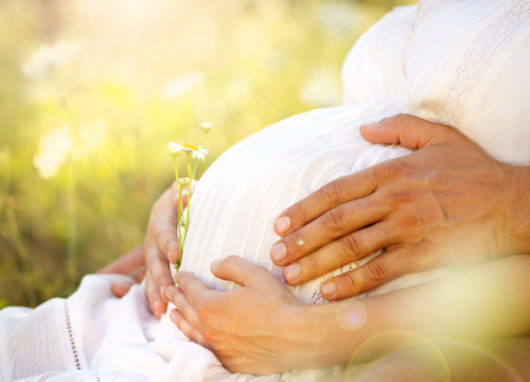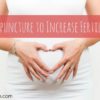Product Description
Chinese Medicine Cairns
Chinese Medicine

Chinese Medicine Cairns
Chinese Medicine Cairns / Chinese Medicine Cairns / Chinese Medicine Cairns / Chinese Medicine Cairns
Chinese Medicine Cairns / Chinese Medicine Cairns / Chinese Medicine Cairns / Chinese Medicine Cairns / Chinese Medicine Cairns
Egg Quality
If you are unable to conceive either due to age, low ovarian reserve or premature ovarian failure, egg quality and the embryo’s ability to implant are the major problems. In many cases scientists have found that eggs seem to fertilize and develop into embryos normally, but fail to implant. Higher rates of aneuploidy (chromosomal abnormalities of the embryo) are one contributing factor, but apart from this scientists have not been able to draw many sound conclusions on why failure to implant happens. When a woman is over age 35, has low ovarian reserve or premature ovarian failure, and IVF has not been successful, egg donation is usually seen as the last available option. However recent research has found that several supplements and Acupuncture can help with implantation and pregnancy rates.
Poor Egg Quality, Low Ovarian Reserve and Premature Ovarian Failure all fall under the umbrella of something we call Kidney Jing deficiency in TCM. The Kidneys are responsible for a person’s essence and reserves of energy, and this corresponds to your genetics, simply put. Any time a condition is present due to genetic predisposition or the condition affects the patient’s most basic genetic materials (eggs or sperm), a kidney Jing deficiency is a contributing factor. Other examples of Kidney Jing deficiency include first menses past age 15, delayed development, or congenital abnormalities. Jing is what you are born with and slowly declines with age. Jing encompasses our ability to reproduce and for women is said to grow or decline in cycles of 7: at age 14 is menarche, at age 21 a woman’s Kidney energy is balanced, at age 28 the body’s energy and reproductive potential peak, and by age 35 it begins to decline. This information is found in ancient texts such as the I Ching and The Huang Di Nei Jing (Yellow Emperor’s Classic of Internal Medicine), and actually seems quite well-supported by modern science.
How is Kidney Jing Decline treated?
1) Acupuncture– there is some debate within the acupuncture community as to whether Jing can be restored through acupuncture alone. My belief is that through balancing the body systems as a whole, we can indirectly and subtly influence the Jing and the Kidney energy as a whole. In addition, certain acupuncture points have been shown to increase blood flow to the ovaries (via blood flow monitoring) which could be helpful in improving the environment in which the eggs mature every month.
2) Adaptogenic Herbs– I recommend adaptogenic herbs because they generally have no adverse effects yet exhibit a normalizing effect on all body systems. Cure-alls? Not quite- but they are helpful with making the body more resistant to the effects of stressors- both emotional and physical. Many types of mushrooms are considered adaptogenic, including reishi, shitake and maitakes. Several varieties of ginseng also are adaptogenic. As you can guess by their name they are able to adapt to the individual, correcting whatever systems tend to be imbalanced. They act on the adrenals, which also correspond to the kidney energy- our reserves of energy.
3) Chinese Herbs– Chinese herbal therapy is a little different from the western idea of taking herbs. In the U.S., we tend to take one single herb at a time for one specific reason. In Traditional Chinese Medicine, formulas, or combinations of 4-15 herbs together are recommended. The herbs work together and their medicinal properties are enhanced by each others’ presence. Many herbs nourish the kidney’s energy, and when taken in an individualized formula for several months, can give the Jing a boost and slow its natural decline. Never take Chinese Herbs that haven’t been specifically prescribed for your condition by a licensed practitioner. Just because your friend took an herbal formula for fertility doesn’t mean it is the right one for you.
Acupuncture dramatically improves pregnancy rates in women undergoing IVF — A study in Germany that was published here in the USA divided 180 women who were having IVF into two groups of 80 women. One group had IVF with acupuncture and one group had IVF without acupuncture. The group that had acupuncture had a pregnancy rate of 42.5% versus the group that had no acupuncture that had a pregnancy rate of 26.3%. That’s almost a 50% better outcome in the acupuncture group.
Acupuncture can reduce the effects of stress on the body and lower stress related hormones that can impede fertility. The same study we talked about above also examined previous studies on the effect of acupuncture on depression and stress related illnesses. It concluded that acupuncture is a viable option to relieve stress in women that are undergoing fertility treatment. This is particularly important because it is known that stress plays a very important role in failure to conceive. A study that was published in Fertility and Sterility in 2001 looked at the state of mind of women going through IVF. It concluded that the women who were most stressed and worried about the procedure were likely to have 20% fewer eggs available for retrieval and a fertilization rate that was 19% less than more optimistic women.


 Initial Consult
Initial Consult
 Acupuncture Help
Acupuncture Help
 Help with Acupuncture
Help with Acupuncture





 Powered by
Powered by